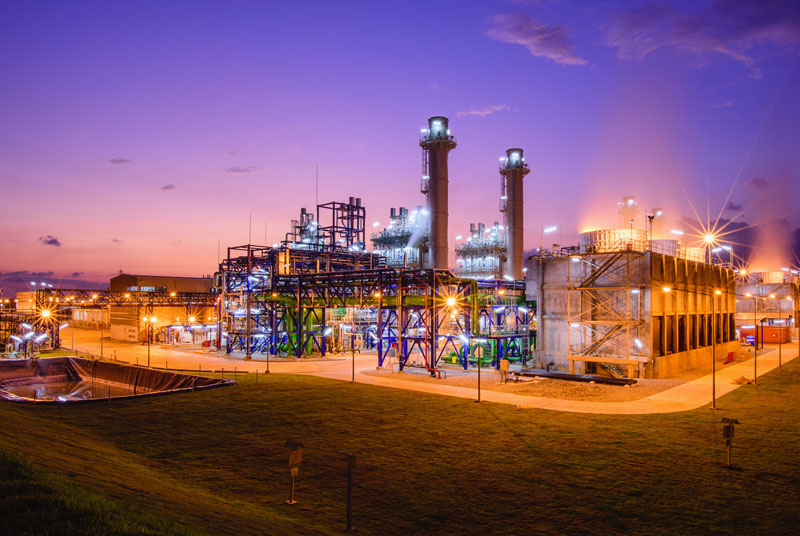Hotel Meeting Room
Hotel Meeting Room

Energy, Electrical Engineering Training Courses


Energy, Electrical Engineering Training Courses
Hotel Meeting Room
Hotel Meeting Room Casablanca
Casablanca
Classroom
Overview ?
Renewable energy is energy that can be generated and used without depleting the source. Examples include energy derived from moving water (hydropower), wind power, heat of the Earth (geothermal energy) and the sun (solar energy). Energy derived from the burning of coal, oil or uranium is not considered renewable because they are finite resources. Coal, for example, while naturally occurring, took hundreds of millions of years to form and therefore is not considered renewable on a human timescale.
If you are interested in renewable energies and sustainable energy technology? Then this Renewable Energy course is ideal for you!
This course is intended to enhance your knowledge to make the world a better place by producing energy from renewable resources. Besides, you'll understand various alternative energy resources. You'll be provided with a strong base and information on different types of renewable energies that can be practiced for the betterment of the environment.
This course aims to enhance the capacity of local decision makers, energy/sustainable development officers and other personnel to make an informed decision on which renewable energy technologies will meet their own needs or the needs of their countries, communities, villages or neighborhoods.
The course is open to those in the business, non-profit, public and academic sectors who wish to install renewable energy systems in both urban and rural settings or make their contribution to reducing carbon emissions through energy efficiency and the use of sustainable energy sources. The course aims to provide delegates with a high-level understanding of the key issues as well as sufficient technical insights to allow them to make informed decisions about technology choices.
Unit 1 - Overview of Renewable Energy Sources
Unit 2 - Renewable Energy Technologies, Sustainability and Costings
Unit 3 - Government Regulation, Targets and Investment
Unit 4 - Markets, Competition, and Pricing
Unit 5 - Investors in Renewable Energy
Unit 6 - Financial Structure of Renewable Energy Projects
Unit 7 - Ownership/Legal Structures of Renewable Energy projects
Day 1
Asset Cost Management Introduction
Definitions of reliability, maintenance & asset management
The total cost of maintenance
Best practice reliability and maintenance processes
Elements of asset management best practice
Auditing performance
Overview of TPM, RCM, BCM, QCM, and other asset management buzzword
Open discussion sessions
Day 2
Laying the Groundwork
Definitions of reliability, maintenance & asset management
The total cost of maintenance
Best practice reliability and maintenance processes
Elements of asset management best practice
Auditing performance
Overview of TPM, RCM, BCM, QCM, and other asset management buzzword
Open discussion sessions
Day 3
Applying the Value based Process
Definitions of reliability, maintenance & asset management
The total cost of maintenance
Best practice reliability and maintenance processes
Elements of asset management best practice
Auditing performance
Overview of TPM, RCM, BCM, QCM, and other asset management buzzword
Open discussion sessions
Day 4
Ensuring the Continuity of the Value-based Process
Definitions of reliability, maintenance & asset management
The total cost of maintenance
Best practice reliability and maintenance processes
Elements of asset management best practice
Auditing performance
Overview of TPM, RCM, BCM, QCM, and other asset management buzzword
Open discussion sessions
Day 5
Supporting Process that Lower Life-cycle costs
Definitions of reliability, maintenance & asset management
The total cost of maintenance
Best practice reliability and maintenance processes
Elements of asset management best practice
Auditing performance
Overview of TPM, RCM, BCM, QCM, and other asset management buzzword
Open discussion sessions
Training Methodology
Pathways Training and consulting adopts the newest techniques of human resources Training and consulting and, with the following:
Course name
Duration
City
Price
Renewable Energy
12, May 2025 16, May 2025
Singapore
5450$
Renewable Energy
19, May 2025 23, May 2025
Prague
5250$
Renewable Energy
01, Jun 2025 05, Jun 2025
Kuwait
3250$
Renewable Energy
09, Jun 2025 13, Jun 2025
Barcelona
5250$
Renewable Energy
16, Jun 2025 20, Jun 2025
Vienna
5250$
Renewable Energy
23, Jun 2025 27, Jun 2025
Zurich
5250$
Renewable Energy
29, Jun 2025 03, Jul 2025
Casablanca
3450$
Renewable Energy
30, Jun 2025 04, Jul 2025
Munich
5250$
Renewable Energy
07, Jul 2025 11, Jul 2025
Marbella
5250$
Renewable Energy
14, Jul 2025 18, Jul 2025
Beijing
5450$
Renewable Energy
03, Aug 2025 07, Aug 2025
Riyadh
3250$
Renewable Energy
10, Aug 2025 14, Aug 2025
Tunisia
3750$
Renewable Energy
17, Aug 2025 21, Aug 2025
Cairo
2950$
Renewable Energy
18, Aug 2025 22, Aug 2025
Rome
5250$
Renewable Energy
07, Sep 2025 11, Sep 2025
Marrakesh
3450$
Renewable Energy
15, Sep 2025 19, Sep 2025
Berlin
5250$
Renewable Energy
22, Sep 2025 26, Sep 2025
Jakarta
4000$
Renewable Energy
28, Sep 2025 02, Oct 2025
Riyadh
3250$
Renewable Energy
06, Oct 2025 10, Oct 2025
Milan
5250$
Renewable Energy
06, Oct 2025 10, Oct 2025
Bangkok
5450$
Renewable Energy
13, Oct 2025 17, Oct 2025
Geneva
5250$
Renewable Energy
19, Oct 2025 23, Oct 2025
Doha
4000$
Renewable Energy
27, Oct 2025 31, Oct 2025
Milan
5250$
Renewable Energy
02, Nov 2025 06, Nov 2025
Beirut
3250$
Renewable Energy
02, Nov 2025 06, Nov 2025
Marrakesh
3450$
Renewable Energy
09, Nov 2025 13, Nov 2025
Manama
3250$
Renewable Energy
09, Nov 2025 13, Nov 2025
Jeddah
3250$
Renewable Energy
16, Nov 2025 20, Nov 2025
Khobar
3250$
Renewable Energy
23, Nov 2025 27, Nov 2025
Sharm ElShaikh
3250$
Renewable Energy
01, Dec 2025 05, Dec 2025
Paris
5250$
Renewable Energy
07, Dec 2025 11, Dec 2025
Muscat
3250$
Renewable Energy
08, Dec 2025 12, Dec 2025
Amsterdam
5250$
Renewable Energy
21, Dec 2025 25, Dec 2025
Amman
3250$
Renewable Energy
22, Dec 2025 26, Dec 2025
Madrid
5250$
Renewable Energy
22, Dec 2025 26, Dec 2025
Brussels
5250$

View course

View course

View course

View course

View course

View course